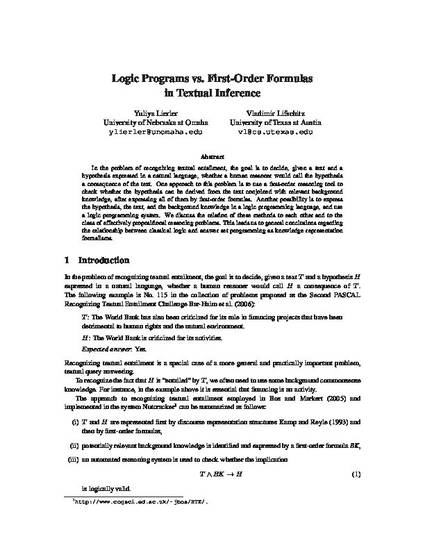
In the problem of recognizing textual entailment, the goal is to decide, given a text and a hypothesis expressed in a natural language, whether a human reasoner would call the hypothesis a consequence of the text. One approach to this problem is to use a first-order reasoning tool to check whether the hypothesis can be derived from the text conjoined with relevant background knowledge, after expressing all of them by first-order formulas. Another possibility is to express the hypothesis, the text, and the background knowledge in a logic programming language, and use a logic programming system. We discuss the relation of these methods to each other and to the class of effectively propositional reasoning problems. This leads us to general conclusions regarding the relationship between classical logic and answer set programming as knowledge representation formalisms.
Available at: http://works.bepress.com/yuliya_lierler/11/

10th International Conference on Computational Semantics (IWCS)